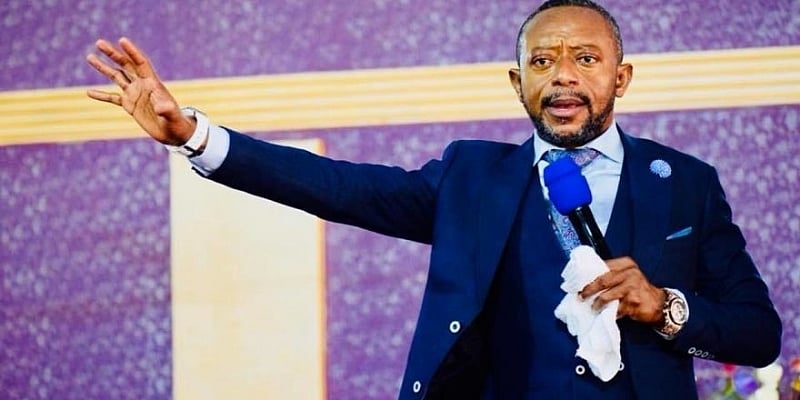Rev. Isaac Owusu Bempah, the founder of Glorious Word Power Ministries International (GWPMI), recently stirred controversy with his prophecy that former President John Dramani Mahama will win the 2024 general elections in Ghana. During a church service on October 6, 2023, he admonished journalists, bloggers, and other commentators who criticized his assertion, asserting that anyone who speaks ill of him will suffer grave consequences, including the affliction of an “incurable disease.” This declaration focused attention on the clash between religious figures and media personalities, particularly when it comes to prophetic statements about political figures and elections. Bempah’s threats were intended to position himself as a legitimate prophet whose words command authority and respect.
Bempah’s latest prophecy marks a significant departure from previous statements, wherein he had asserted that Mahama’s political aspirations were doomed due to his “tainted” past — a narrative suggesting that bloodshed was associated with Mahama’s tenure. In light of this contradiction, Bempah sought to justify his seemingly inconsistent claims by invoking biblical teachings, particularly the idea that God’s plans can evolve and change. By citing scripture, he aimed to establish a theological basis for his prophetic shifts, which he argues reflects the complexity of divine will rather than frank deceit or failure of foresight.
The controversy around Bempah’s prophecy highlights the fragility of prophetic authority, especially when it appears to be influenced by current political dynamics. Critics are quick to label him a “con prophet,” an assertion articulated by Bernard Allotey Jacobs, former Central Regional Chairman of the National Democratic Congress (NDC). Jacobs asserted that Bempah’s prophecies are not genuine spiritual forecastings but rather are motivated by monetary gains and favoritism. His criticism sheds light on broader suspicions surrounding religious figures who engage in political discourse, suggesting that some might exploit religious authority for personal gain, thus damaging the credibility of true prophecy.
The intersection of faith and politics in Ghanaian society creates an environment ripe for conflict, especially as the nation gears up for the 2024 elections. As political campaigns gain momentum, figures like Bempah become increasingly prominent in public discourse, often swaying opinions and influencing voter perceptions. The intersection of religious prophecy and political endorsement complicates the landscape, as many Ghanaians may look to spiritual leaders for guidance on political choices, further entrenching the power of such figures in the electoral process.
Moreover, the incident demonstrates a trend among religious leaders to assert their influence in national matters, oftentimes invoking divine will to justify their positions. The urgency and fervor with which Bempah expressed his latest prophecy, juxtaposed against his earlier assertions, reflect a broader struggle for relevance among clergy in an increasingly competitive political environment. By positioning Mahama’s possible victory as divinely ordained, Bempah not only elevates his own status within religious circles but also engages in an intricate dance with the political elite, aiming to secure his ministry’s influence while navigating potential backlash from both spiritual and secular realms.
As the election approaches, the emergence of such prophetic declarations will likely continue, raising questions regarding the role of faith in political processes and the ethical implications for leaders who claim to speak on behalf of God. With Bempah’s sharp rebuke of dissenting voices and steadfast belief in his prophetic insights, the potential for conflict remains high. The interplay between politicians and prophets will undoubtedly become a critical focal point, underscoring the intertwined nature of religion and politics in Ghana’s evolving democratic landscape, inviting scrutiny from both believers and skeptics alike in the coming months.














